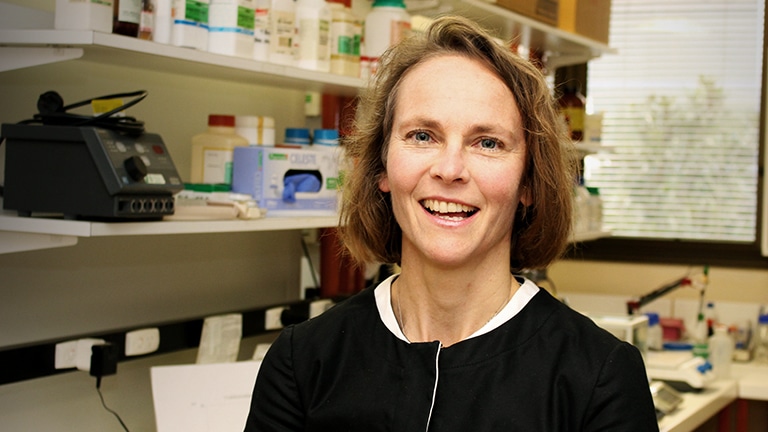
Researchers have secured more than $6 million in national funding, including $2.5 million for a world-first research centre to test a range of cannabinoids.

University of Newcastle (UON) researchers have secured more than $6 million in the latest round of National Health and Medical Research Council (NHMRC) funding, including $2.5 million for a world-first research centre to test the effectiveness and safety around medicinal applications of a range of cannabinoids.
Led by clinical pharmacologist Professor Jennifer Martin and in partnership with the Hunter Medical Research Institute (HMRI) and NSW Health, the Australian Centre for Cannabinoid Clinical and Research Excellence (ACRE) will undertake vital work coordinating formulation and dose studies.
UON Deputy Vice-Chancellor (Research & Innovation), Professor Kevin Hall, said the NHMRC funding outcome was a wonderful acknowledgement of world-class research being undertaken in Newcastle, as well as a crucial step forward for the management of chronic illness.
“I would like to congratulate all the recipients on this great outcome for the future of health research in Newcastle. I look forward to their vital work delivering tangible outcomes for the community on both a local and global scale,” he said.
HMRI Director, Professor Michael Nilsson, added that the funding would enable Hunter researchers to deliver patient-focused translational research across all stages of life.
“Fellowship funding, in particular, allows researchers to dedicate time and energy to their respective projects, expanding knowledge and building collaborations rather than continually seeking grants,” he said. “It’s reward for hard work, which I’m sure will reap dividends for the entire nation.”
The NHMRC funding outcomes also include:
With physical inactivity the fourth leading cause of non-communicable deaths worldwide, Professor Plotnikoff’s work incorporating public gym equipment, a smartphone app, education and social support will aim to influence future outdoor fitness parks and improve community health.
Laureate Professor Smith aims to better understand and prevent premature birth, reduce low birth weight and prevent of stillbirth, of which Indigenous Australians are at increased risk. The Fellowship will also undertake research to understand why pregnant women are vulnerable to certain viral infections and identify strategies to reduce maternal infection at the time of viral epidemics.
Dr Tzelepis will lead a randomised trial that investigates the effectiveness of online and telephone support in socially disadvantaged groups and real-time video counselling to assist long-term smokers in regional and remote areas to quit smoking.
Dr Bivard has developed software to better select patients for stroke therapies and, by identifying patients most likely to benefit, hopes new technology will avoid unnecessary treatment and maximise cost effectiveness and benefits for survivors.
Defective sperm function is the largest single, defined cause of human infertility and poor sperm quality may be predictive of major systemic diseases such as cardiovascular disease, diabetes, and cancer. Dr Bromfield will investigate new ways to limit cellular stress in order to develop therapies in male reproductive health.
By evaluating strategies currently in place to assist those with mental illness, Dr Bartlem will test a tailored intervention in community mental health services and evaluate the effectiveness of existing telephone services for people with mental illness. She aims to contribute to an overall reduction in the chronic disease burden.
*HMRI is a partnership between the University of Newcastle, Hunter New England Health and the community.
HMRI would like to acknowledge the Traditional Custodians of the land on which we work and live, the Awabakal and Worimi peoples, and pay our respects to Elders past and present. We recognise and respect their cultural heritage and beliefs and their continued connection to their land.

Hunter Medical Research Institute
We’re taking healthy further.
Locked Bag 1000
New Lambton
NSW, Australia, 2305



This site is protected by reCAPTCHA and the Google Privacy Policy and Terms of Service apply.
Copyright © 2024 Hunter Medical Research Institute | ABN: 27 081 436 919
Site by Marlin Communications
